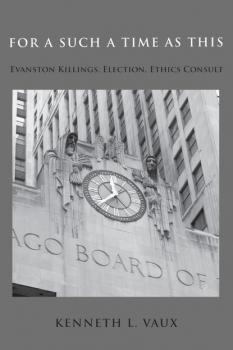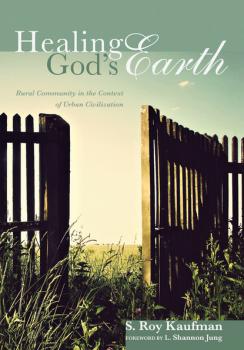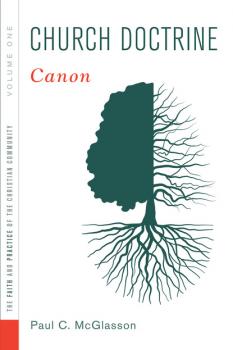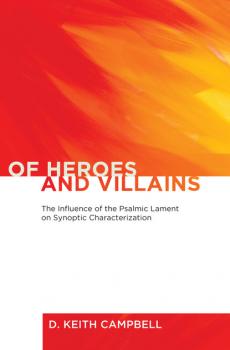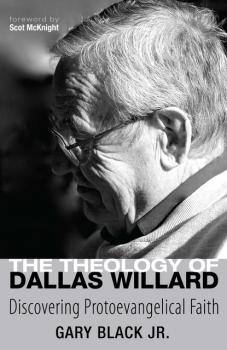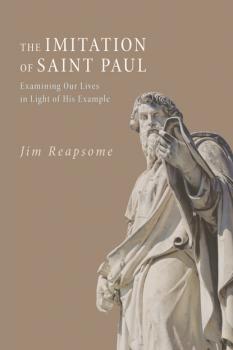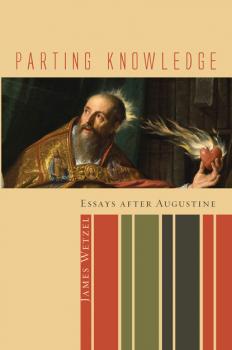ТОП просматриваемых книг сайта:
Религия: прочее
Различные книги в жанре Религия: прочее, доступные для чтения и скачиванияАннотация
This third volume of Ken Vaux's memoirs covers the calendar year of 2012 which focused on (1) teaching in the Evanston church as this body struggled to be both evangelical in theology and oriented to social justice in the community. We searched together for having what it takes to be a «University Church»–preaching and teaching a credible and relevant message and living out a vital witness; seeking honest responses to issues in church and state such as homosexuality, embodying concern for the poor and lively ministry in the neighborhoods of the parish. (2) That community was confronted with belief crisis and ethical challenge during the year with eight gun-killings of young people. The churches now had to move beyond the prevalent complacency, confront the racisim and disregard for the poor disband the apartheid of the village that existed even in black and white Ministeria and get real with what an interfaith community had to do to leaven and heal its own backyard. (3) For Such a Time as This also deals with global and national political issues such as an unwinding war in Iraq and Afghanistan and a new one arising in Syria–biblical theology being put to the test–and the provocative election of 2012 as the theological imagination was stirred by candidates Obama and Romney.
Wise Man from the East: Lit-sen Chang (Zhang Lisheng) - Lit-sen Chang
Studies in Chinese ChristianityАннотация
How should Christianity relate to Chinese culture? That question has engaged the minds of both Chinese and Western Christians for several centuries. Lit-sen Chang (1904-1996) was brought up as a Buddhist and educated in the Confucian classics as well as in modern political philosophy. He later delved deeply into Daoism as well. After World War II, he founded Jiangnan University in order to «exterminate» Christianity and revive Eastern religion.
Conversion to Christianity in 1950 radically altered the course of his life. He studied at Gordon-Conwell Theological Seminary and then joined the faculty, teaching missions and writing prolifically on theology and apologetics, especially on the relationship of Christianity to Chinese culture. His Critique of Indigenous Theology and Critique of Humanism are published here in English for the first time, and provide excellent examples of his wide learning, insightful analysis, powerful writing, and firm commitment to historic Christianity.
Conversion to Christianity in 1950 radically altered the course of his life. He studied at Gordon-Conwell Theological Seminary and then joined the faculty, teaching missions and writing prolifically on theology and apologetics, especially on the relationship of Christianity to Chinese culture. His Critique of Indigenous Theology and Critique of Humanism are published here in English for the first time, and provide excellent examples of his wide learning, insightful analysis, powerful writing, and firm commitment to historic Christianity.
Аннотация
The task of this book is to examine the biblical and theological meaning of the city and our mission within it. It starts with the premise that the garden is lost, and we are headed toward the New Jerusalem, the city of God. In the meanwhile, we dwell in earthly cities that need to be adjusted to God's city: «[T]he fall has conditioned us to fear the city . . . though, historically, God intended it to provide safety, even refuge. . . . We have to band together and act to take back our communities if we are to help God in the divine task of reconciling the world to Godself by assisting God in adjusting our communities to God's New Jerusalem, rebuilding our own cities of Enoch on the blueprints of Christ . . . to go into all the world and share his good news, building the Christian community along the lines of the New Jerusalem, a city of light in which God is revealed.» (from the Introduction by William David Spencer)
Toward achieving this goal, this single, accessible volume brings together the biblical, the systematic, and the practical aspects of urban ministry by various contributors who are urban practitioners and theologians themselves, and have taught at Gordon-Conwell Theological Seminary, Boston Campus.
Toward achieving this goal, this single, accessible volume brings together the biblical, the systematic, and the practical aspects of urban ministry by various contributors who are urban practitioners and theologians themselves, and have taught at Gordon-Conwell Theological Seminary, Boston Campus.
Аннотация
Rural communities and traditional cultures throughout North America and around the world are being systematically dismantled by the forces of urban civilization. It is no new phenomenon. For over four millennia, the powers of urban civilization have been playing God, oppressing people, and exploiting the earth. This long history has brought us to the brink of disaster in the current economic, ecological, and energy crises confronting the dominant global culture.
This book reads the Bible through the lenses of rural communities. The Bible has something to say about the origin and character of urban civilization and the dynamic of its relationship to rural communities. Both Israel in the Old Testament and Jesus in the New Testament were engaged in the formation of rural communities of faith living as alternatives to the dominant cultures of the urban civilizations in which they lived.
It turns out that local, face-to-face communities, both rural and urban, along with traditional cultures of all stripes, are God's chosen instruments for the subversive, nonviolent disarming of urban civilization and the healing of God's earth.
This book reads the Bible through the lenses of rural communities. The Bible has something to say about the origin and character of urban civilization and the dynamic of its relationship to rural communities. Both Israel in the Old Testament and Jesus in the New Testament were engaged in the formation of rural communities of faith living as alternatives to the dominant cultures of the urban civilizations in which they lived.
It turns out that local, face-to-face communities, both rural and urban, along with traditional cultures of all stripes, are God's chosen instruments for the subversive, nonviolent disarming of urban civilization and the healing of God's earth.
Аннотация
The present volume is the first in a five-volume study of church doctrine. The multivolume set will cover the major parts of church doctrine: Canon, God, Creation, Reconciliation, and Redemption. This first volume begins with an introduction on why doctrine matters, which stresses the ecumenical, global, and above all biblical horizons of church doctrine as a primary expression of Christian witness.
The purpose of this volume is to begin a search for an alternative to the many theologies available on the religious left and the religious right. Where doctrine is absent, the church is held captive to ideology; the same is as true among conservatives as it is among liberals. The present work is an attempt to struggle toward the meaning of orthodoxy in church doctrine–an orthodoxy that is never merely a given, but which always has to be sought and found again and again in each new generation of the church.
Church doctrine is not a luxury, but a necessity for the living community of faith, by which its witness in word and deed is tested against the one true measure of Christ the risen Lord.
The purpose of this volume is to begin a search for an alternative to the many theologies available on the religious left and the religious right. Where doctrine is absent, the church is held captive to ideology; the same is as true among conservatives as it is among liberals. The present work is an attempt to struggle toward the meaning of orthodoxy in church doctrine–an orthodoxy that is never merely a given, but which always has to be sought and found again and again in each new generation of the church.
Church doctrine is not a luxury, but a necessity for the living community of faith, by which its witness in word and deed is tested against the one true measure of Christ the risen Lord.
Аннотация
Gripping stories, whether modern or ancient, always include heroes and villains. The Synoptic Gospels, chock full of villains (religious leaders and others) in pursuit of an emerging hero (Jesus), are no different. Drawing first-century Jews into their familiar past and beckoning modern readers to join in its appreciation, these writers employ a literary tactic that intensifies this conflict; they depict these characters as Old Testament heroes and villains. To enter this fascinating, intertextual character portrayal, this book, in building on eighty years of lament studies, advances our understanding of the Synoptists's literary and rhetorical use of the Psalmic Lament in relation to other Old Testament motifs to characterize Jesus and his opponents. Other contributions made along the way, including insights into the Synoptists's literary appropriation of Isaiah's Servant, are all geared toward helping us better understand how Matthew, Mark, and Luke characterize their hero and villains.
Аннотация
Evangelical Christianity in the United States is currently in a dramatic state of change. Yet amidst this sometimes tumultuous religious environment a rather unique blend of both ancient and contemporary Christian theology has found its way into the hearts and minds of emerging generations of Christians. The Theology of Dallas Willard both describes and conveys the essence of this increasingly popular and perhaps mediating view of the gospel of Jesus Christ. Blending both a prophetic critique with pastoral encouragement, Willard's unique understanding of the reality present within a life lived as a disciple of Jesus in the kingdom of God is attracting both new and traditional Christians to reconsider their faith.
Аннотация
The book you now hold in your hands contains nearly everything the great American puritan Jonathan Edwards (1703-58) ever wrote on the book of Romans. It is collated into a verse-by-verse Bible commentary. Pastors, theologians, historians, and Bible study leaders will find a treasure of biblical insight along with practical application, as one of the great theologians of the Christian church expounds the book that Martin Luther called the «most important piece in the New Testament.» Jonathan Edwards' expository genius is clearly evident in both the depth of his biblical insight as well as his logic. Readers will be encouraged and edified as they delve deeply into the book of Romans with Jonathan Edwards by their side.
Аннотация
The Imitation of Saint Paul takes us behind the headlines of his career and offers a fresh, compelling, contemporary look at the man who changed the world. When the exemplary apostle got into the face of his converts, he bluntly held up his own life as the pattern for theirs. How risky is that? The purpose of this readable work with a modern twist is to discover how Paul viewed his divine commission and how he managed to survive incredible obstacles and hardships that threatened to undo him. What elements in the apostle's life made him the man he was? How does his life become the format of ours? What changes can we make to follow in his footsteps? This work serves as both an introduction to the apostle for those new to the Christian faith and as a healthy reminder for those who want to go deeper in their obedience to and service for Christ.
Аннотация
There are forms of knowing that seem either to come from a parting or to require one. Paradigmatically in Genesis, Adam parts from God in order to join in knowledge with his partner, the flesh of his flesh, and the result is a bereft but not unpromising knowledge, looking like a labor of love. Saint Augustine famously–some would say infamously–reads the Genesis paradigm of knowing as a story of original sin, where parting is both damnable and disfiguring and reuniting a matter of incomprehensible grace. Roughly half the essays in this collection engage directly with Augustine's theological animus and follow his thinking into self-division, perversity of will, grief, conversion, and the aspiration for transcendence. The remaining ones, more concerned with grace than with sin, bring an animus more distantly Augustinian to the preemption of forgiveness and the persistence of hell, morality and its limits, sexual piety, strange beauty, and a philosophy that takes in confession. The common pull of all the essays is towards the imperfection in self-knowledge–a place of disfigurement perhaps, but also a nod to transformation.

